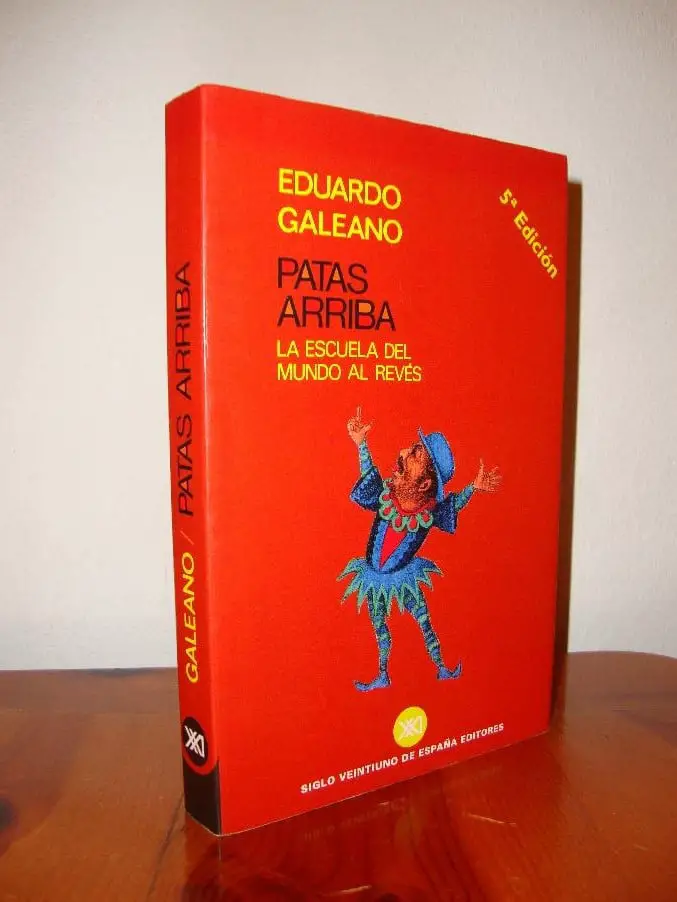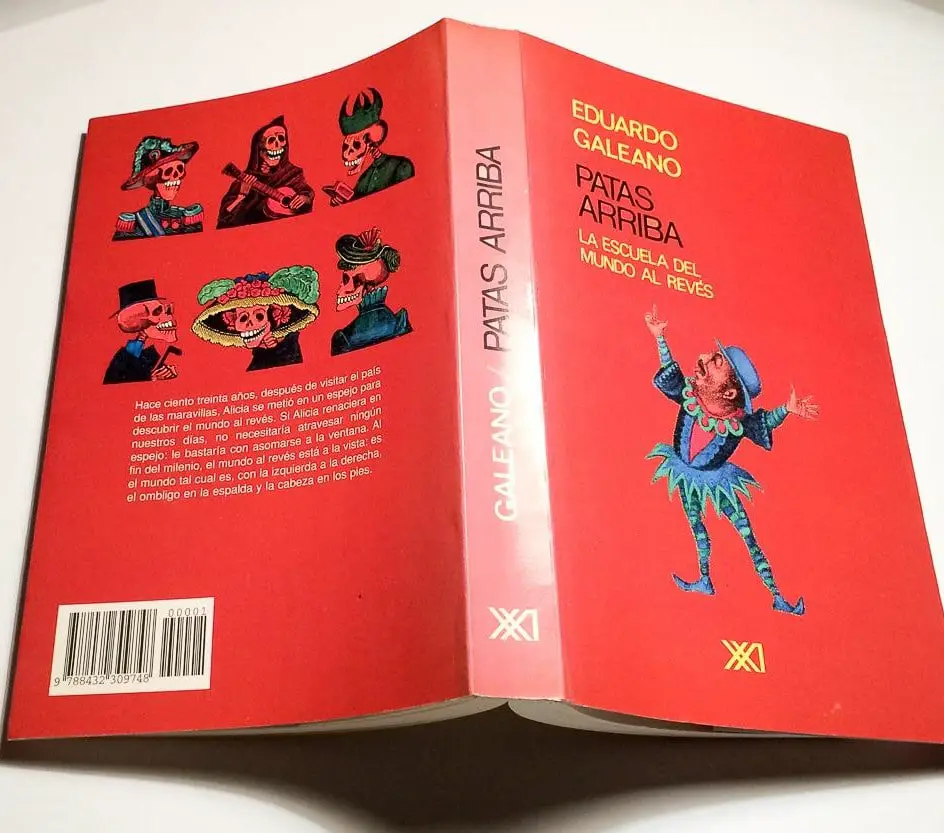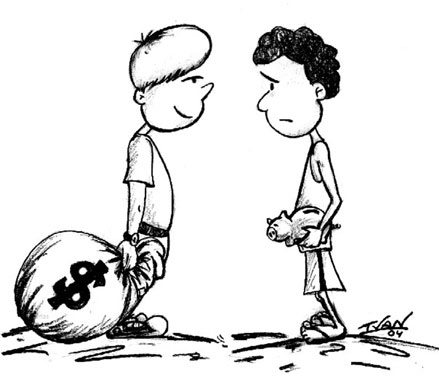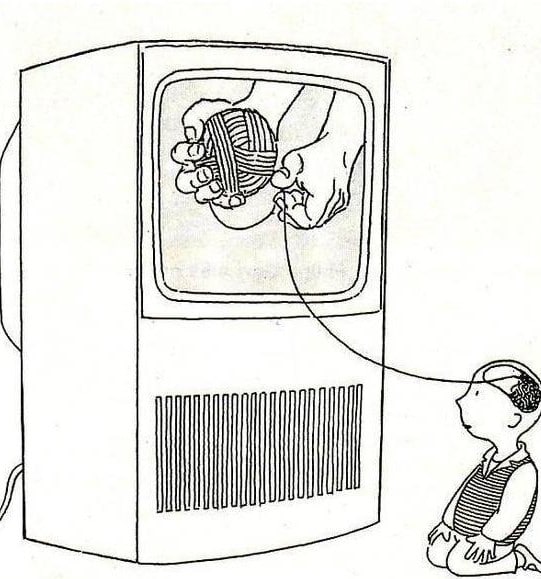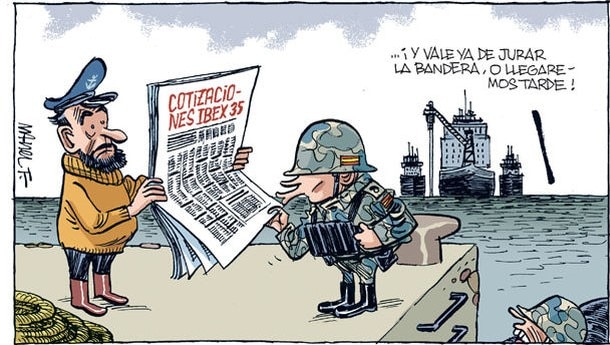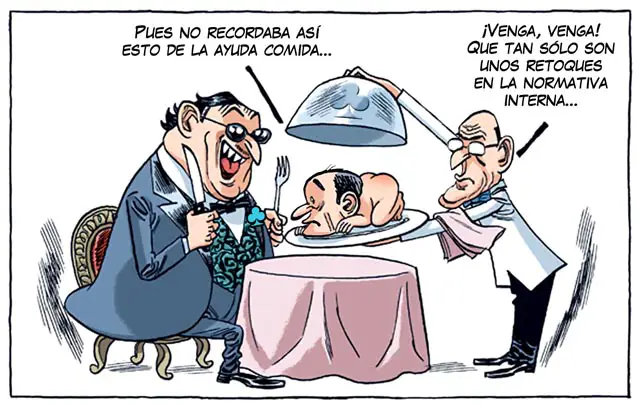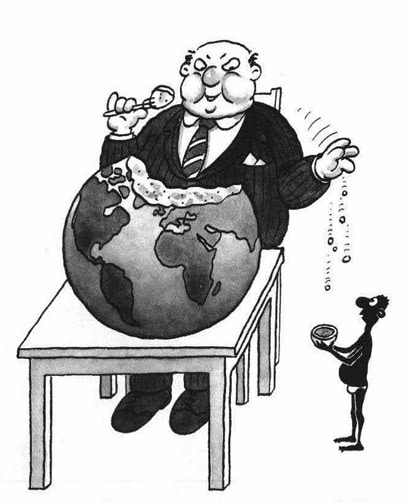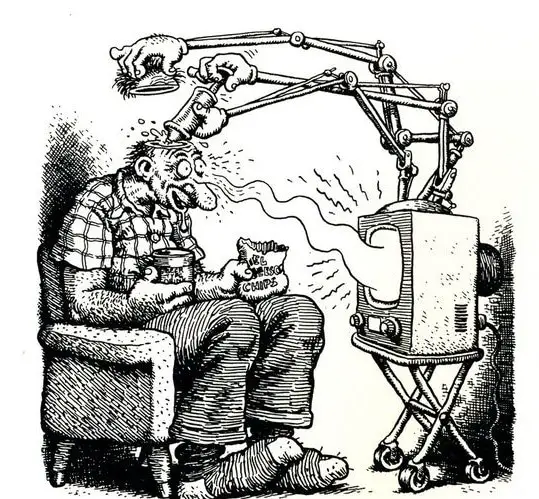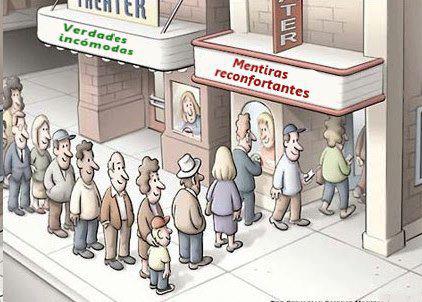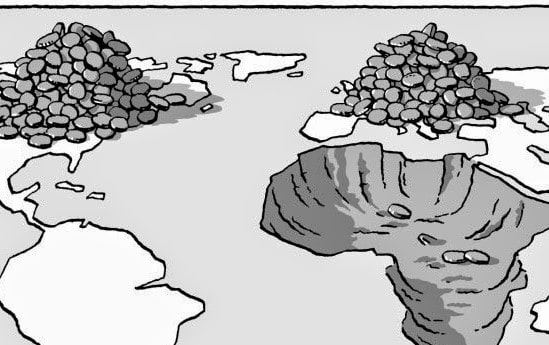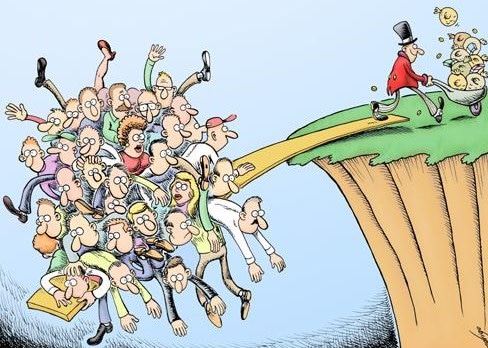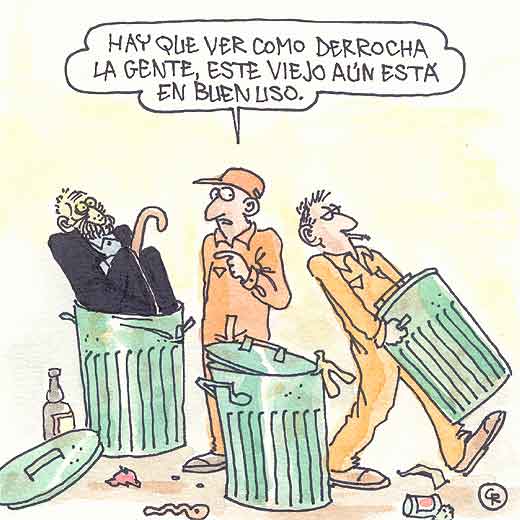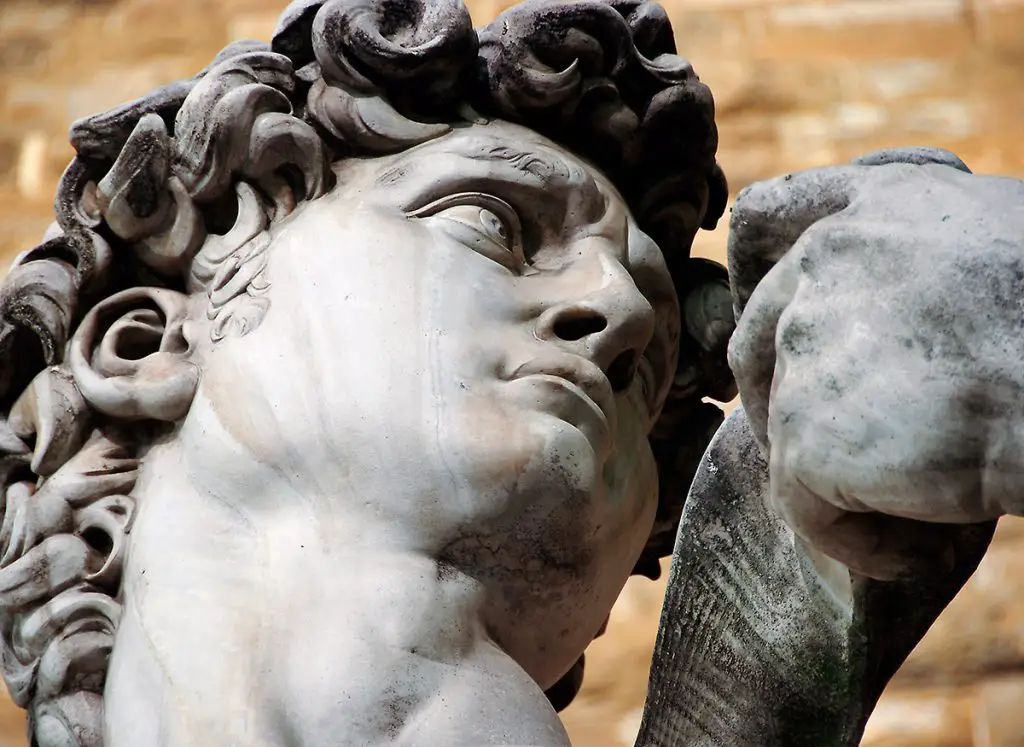Patas arriba is a book by Eduardo Galeano, published in 1998, in which he recounts the brutal and criminal acts of the powerful against the weakest. Discover this interesting anthology full of history, anecdotes, economics and the everyday life that people are subjected to in society.
Summary of patas arriba
In his book patas arriba, Galeano discovers a new world about the way the powerful and their governments rule by controlling the weakest, which in this case Galeano points out to Latin America as a puppet of the developed and industrialised countries. It also reflects the illogical way of ruling through barbaric acts towards other human beings, and the incomprehensibility of ruling through power and wealth, pointing to a world that is upside down. Another great book is Power Without Limits.
The school of the world upside down
This chapter is divided into four sections, entitled ‘Teaching by example’, ‘Pupils’, ‘Basic course on injustice’ and ‘Basic course on racism and machismo’.
Having said that, this chapter will talk about the aspects of children’s education that are predetermined by society according to the social class in which you find yourself. This means that if you are poor, rich or both, society will treat you as such.
Also mentioned are the consequences of television and the consumerism that it indirectly transmits, without taking into account social class. This is expressed by Galeano as a social inequality. Consumerism tells you that you have to use or buy, but your economy does not allow this, which creates a class divide.
He also highlights the aspect of wealth that is managed by the industrialised countries, which want to produce more, but with cheaper costs and raw materials, which affects Latin American countries.
And finally, the aspects that determine racism and machismo. Those whose DNA, according to elite societies, predisposes them to be discriminated against.
The chair of fear
This chapter is divided into three sections called The Teaching of Fear, The Industries of Fear and The Tailoring Classes; how to make bespoke enemies. Gargantua and Pantagruel is another great novel I recommend.
First and foremost, there are the deteriorating aspects of a society that wants security at any cost, and in some cases even at the cost of justice. The control of private security companies through the fear of the people is also mentioned. Finally, concerns are expressed about the increasing investment in arms production by governments that are supposed to be responsible for peace in the world.
Ethics seminar
This upside-down chapter is divided into practical work; how to succeed in life and make friends. And lessons against useless vices.
It all starts with mentioning the differences between the poor and the rich criminals, where the former are imprisoned because they have no resources and the latter, thanks to their economic and social stability, are positioned at a level of power like kings, presidents, politicians and even casino businessmen. Moreover, thanks to the poor and weakened salaries of the workers, they are forced to bow down and accept whatever they are given, without the right to protest.
Master classes on impunity
This chapter is developed through models to study the impunity of the hunters of men, the exterminators of the planet and the sacred engine.
Oil companies that make their fortunes by destroying nature. As well as the laws that are enforced in an unknown way by criminals who make a mockery of justice. On the other hand, there is the wealth generated by the exploitation of natural resources by the very countries that are supposed to protect them. And finally, the humiliation of workers and their right to an honest job due to new technologies and unemployment.
Pedagogy of loneliness
The lessons of the consumer society and the crash course in incommunication.
This part describes the previous aspects of consumerism, but in terms of what you want and what you cannot have, imagining that television presents you with wonderful things and that if you try to get them, you may end up in prison because you do not have the economic capacity to acquire them. Without taking into account the temptation that the media present. Similarly, the concepts of globalisation and lack of control over technology are developing.
To the point where it is no longer man who controls the machines, but the other way round. As well as the deception it creates in viewers by adopting the values of the government and transmitting them in a recreational way.
The counter-school
The last chapter of the upside-down book, dealing with betrayal and the promise of the end of the millennium. And the right to delirium.
Here Galeano exposes the concepts of religion and the loss that technological evolution has generated with faith. He raises the creation of a new world to come, generated by the global crisis of the powerful over the weak. If you want to read another South American author, I recommend the book Arena.
Analysis of patas arriba
The anthology patas arriba, created by Galeano, tries to expose the fracture that has been created in society thanks to the control that the bigger countries have over the mistreatment of the smaller ones, which in this case is Latin America.
In the same way, historical facts illustrate how, little by little, man has abandoned his values and has been dominated by the media, accepting everything that is imposed on him, be it low wages, labour exploitation, insecurity, class division and racism.
This is reflected in the violence we see every day and are so accustomed to hearing about. On the other hand, the humiliation suffered by Latin American countries and the theft of their wealth by countries like the US and Europe.
Galeano tried to bring to light all the corrupt acts that politicians did to get there. Do you see why there are only poor people in prisons? Simply because they are poor and do not have a high social status, they cannot buy their freedom like many businessmen and public figures in society do.
In short, topsy-turvy does justice to what we see today. A world ruled by laws without values and honour, full of violence and corruption.

